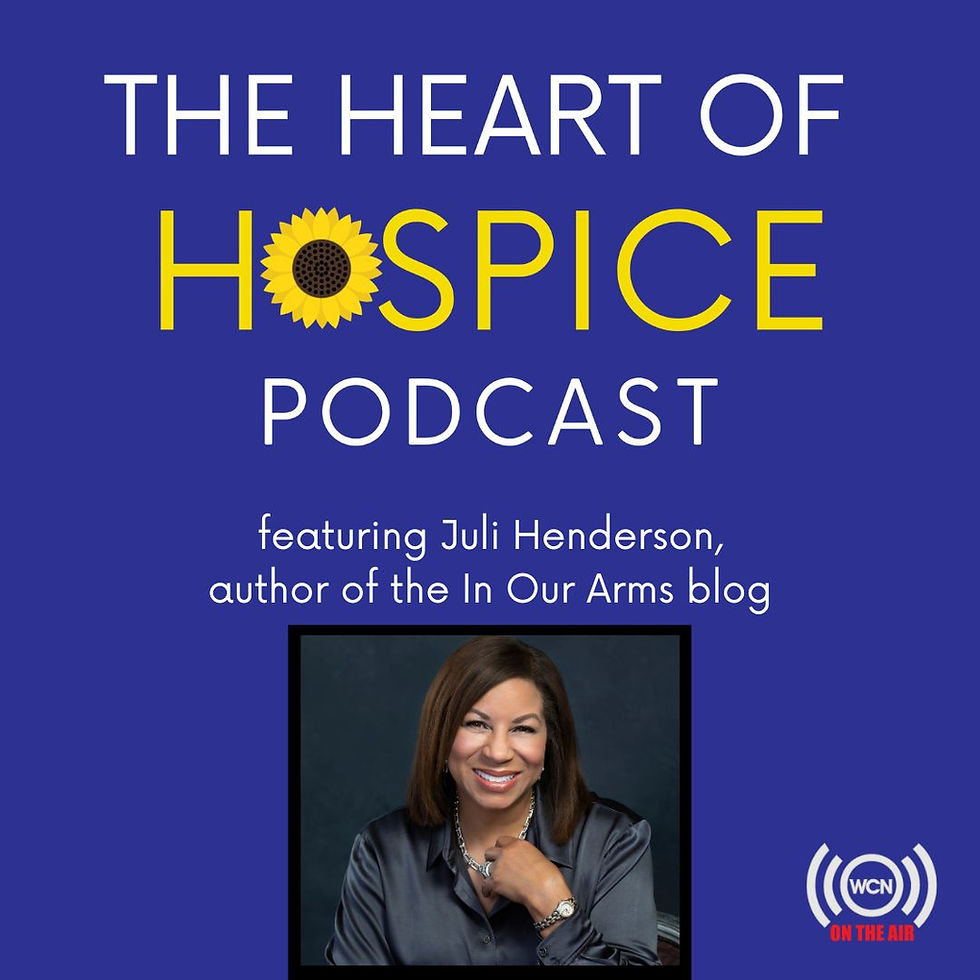How to Manage the Experience of Ambiguous Loss
- Sep 8, 2022
- 4 min read
Our guest blogger Roberto Velasquez is the President & CEO of Southern Caregiver Resource Center, which is one of the 11 Caregiver Resource Centers throughout California. He has 34 years of experience working in the health & human services and aging field. Over his tenure, he has garnered over $40 million in support for programs for family caregivers of individuals with chronic and disabling conditions, with a unique specialty in developing programs targeting underserved and culturally diverse populations.
As a caregiver, loss and grief are common experiences, even if your loved one is still alive. Most of us assume we couldn’t be suffering from grief if the loved one in our care hasn’t yet passed. This incorrect assumption may lead you not to recognize the signs and symptoms of ambiguous loss or anticipatory grief. Without definitively recognizing what you’re suffering from, your emotional limbo may linger longer than it needs to. In this article, we’re going to define ambiguous loss, offer coping tools, and give you an idea of when it’s time to ask for help.
What is Ambiguous Loss?
Ambiguous loss refers to a loss in limbo. It’s a weird sensation of feeling as though you’ve lost something without ever receiving closure. Sometimes the best way to explain an abstract concept like ambiguous loss is through examples.
According to the Healthy, grief researchers have identified two types of ambiguous loss:
● “When the body is present, but the mind isn’t.”
This first type of ambiguous loss will be familiar to those caring for someone with a cognitive disorder like Alzheimer’s disease or dementia, or a severe mental illness. This sense of loss stems from the difference in your mind between who someone is now versus who you knew them to be at some point in the past.
● “When the person is gone, but they’re still on your mind.”
The second type of ambiguous loss is when a living person is not physically present in your life, but still holds a place in your mind. This may be the case for caregivers who recently relinquished their care duties to a facility, or people you have recently cut out of your life for any reason, for example.
Here are some additional examples of situations that may trigger these feelings of loss:
● Immigration (or a loved one that has moved far away)
● Grief for a loved one whose physical health is declining, and anticipation of pending loss
● Giving up a child for adoption.
Symptoms of Ambiguous Loss
The symptoms may vary, but they often look similar to depression. Here are some symptoms of ambiguous loss:
● You may feel unheard and unsupported because your family and friends can’t seem to understand your grief.
● You feel as though you are going crazy because you oscillate between hope and hopelessness, extreme joy and sadness, or another opposing set of emotions.
● You may fear or fully believe that your feelings aren’t valid—as if you are being dramatic or overreacting.
● You may have feelings of guilt for being sad, especially if your loved one is still alive. You may convince yourself that your sadness is wrong because you should feel grateful instead.
● Experiencing survivor’s guilt.
● And more.
How to Cope with Ambiguous Loss
Ambiguous loss can be harder to overcome than traditional grief. This is because of its inherent uncertainty. If you’re unable to receive closure, here are some tips for how to cope with ambiguous loss.
Remember: there is no right or wrong way to experience loss or grief. The goal is to simply move through it so you can heal.
Use the term “Ambiguous Loss”
The first way to cope with ambiguous loss is to call it what it is. Instead of feeling lost, confused, hopeless, or bitter, it’s better to recognize your grief as something perfectly normal. This will help you walk through the experience with less guilt or anxiety.
Create Closure for Yourself
For example, write out your feelings in a letter to your loved one and toss it in a fireplace. You can create a ritual or tradition for them, or honor their place in your life however you see fit.
Allow Yourself to Grieve
Your experience of loss is both valid and normal. Allow yourself to experience it. This doesn’t mean that you’ve “given up” on your loved one, it means you’re in limbo between accepting who they were and who they are now. You may need to properly grieve the past to be present in the now.
Find Others in Your Shoes
Is there a support group or community for people in your area or people who have experienced the same thing? Connecting with others who understand exactly how you feel can be deeply cathartic and may help you get through this experience.
Be Gentle With Yourself
Take a break if you need it. Hire respite care. Take a bubble bath. Take a trip. Go for a walk. Quiet the voice in your head and be gentle with yourself.
Seek Help
If you’re feeling overwhelmed or exhausted by your grief, there is no need to wait. Find a professional to talk to. A professional is there to help you untangle your thoughts and emotions in a safe and non-judgmental way.
Closing Thoughts || Ambiguous Loss for Caregivers
Ambiguous loss is one of the more challenging emotional experiences that caregivers may experience. If this article resonated with you, we hope you now know that you are not alone and your experience is valid.
No matter who you are or where you are in your hospice journey,
you are The Heart of Hospice.




Comments